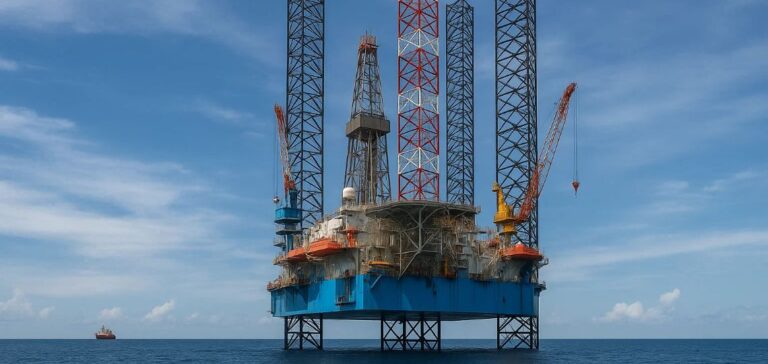SK Innovation, a key player in South Korea’s energy sector, is rapidly expanding its presence in Southeast Asia through a series of strategic investments. Its exploration and production (E&P) subsidiary, SK Earthon, recently secured exploration rights for two new offshore blocks in Indonesia. Located off the island of Java and near the Maluku Islands, these promising blocks complement an already substantial regional portfolio. SK Innovation’s strategy focuses on geographic proximity to improve operational efficiency and expedite resource development.
Strategic Developments in Indonesia and Vietnam
In Indonesia, SK Earthon is sharing its investments with local and international partners. In the offshore Serpang block, the South Korean company holds a minority stake of 14%, alongside Malaysia’s Petronas (51%) and Japan’s Inpex Corporation (35%). In the Binaiya block, Indonesian operator Pertamina holds a 56% stake, while SK Earthon and Petronas each have a 22% share. In Vietnam, SK Earthon also holds several blocks, including block 15-1/05, where significant discoveries have recently been confirmed.
Consolidation of Operations in Malaysia
In Malaysia, SK Earthon is consolidating its activities under a similar strategy, particularly through the development of block SK427 and the Ketapu oil cluster, located off Sarawak. SK Earthon operates the Ketapu project, holding an 85% stake, exemplifying the group’s aim to position itself as a key regional player in offshore exploration. The company plans to intensify geological and geophysical studies to accurately evaluate exploitable reserves.
Regional Clustering Strategy
SK Innovation’s investment strategy relies on geographical clustering of its operations, commonly known as the “clustering” approach. This strategy enables economies of scale, shorter lead times for project execution, and optimized use of logistical and technical infrastructure. SK Earthon thus intends to conduct 3D seismic surveys over the next three years to identify geological structures suitable for exploratory drilling in its new Indonesian assets.
Energy Security Implications for South Korea
These targeted offshore exploration investments directly support South Korea’s energy security goals. Historically dependent on energy imports, the country is actively seeking to diversify its hydrocarbon sources. SK Innovation’s initiative fully aligns with this national policy, securing regional oil resources strategically close to home, ensuring medium-term energy independence. This effort also strengthens SK Innovation’s economic position within the Asian region.






















